Addiction causes both physical and psychological damage to patients. Acknowledging that you have a problem and need help is the first and most crucial step in your recovery. However, it’s never easy, given that denial is one of the most dominant signs of addiction. If you’ve already acknowledged that you need help or have a friend or family seeking recovery from addiction, experts can help you. Similarly, you can consider various support groups such as Alcoholics Anonymous (AA) or Narcotics Anonymous (AA) to help you on your way to abstinence.
Factors Influencing Treatment Plan
Different factors can also affect your recovery process, even after acknowledging the problem. Here are some circumstances that determine the success and duration of your recovery.
- Addiction type
- The period of substance use
- Impact of the substance on the individual
Besides causing addiction, substance use also typically leads to other health complications that your treatment may need to incorporate. These include:
- Liver disease- Common with people struggling with alcohol addiction.
- Respiratory diseases- Common with smokers
Treatment Procedure
The most common intrusion combines outpatient and in-patient schedules, medication, support groups, and counseling. Likewise, detoxification is primarily common in every situation, given that almost all patients need help eliminating the addictive substance from their bodies. Here are the common treatment processes.
Detoxification
Detoxification is the first stab at addiction recovery. It involves safely removing the substance from your system, thus reducing the severity of withdrawal symptoms. Patients using numerous substances may require medication to help recover fully.
Behavioral Therapy and Counseling
Therapy can be with a team, family, or personalized, depending on your needs. The sessions are typically intense during the beginning of the treatment but reduce towards the end as you make progress towards gaining sobriety.
Types of Therapy
- Cognitive therapy- you learn the effects of the substance and shift its paradigm.
- Holistic family therapy usually boosts the role of a family in the life of an adolescent struggling with addiction.
- Encouragement interview-this capitalizes on the individuals’ willpower to alter their character.
- Positive rewards- to encourage you to continue abstaining from any substance abuse.
Rehabilitation schedules
- Longer rehabilitation schedules are more effective as the ultimate goal is total abstinence and bouncing back to the everyday healthy life.
- Short span domestic treatment– aims at detoxifying and familiarizing you with a team.
- In-house recovery– involves a short-lived in-house stay to help you bounce back as a responsible person living a drug-free life.
- In-patient rehabilitation– most suitable for individuals fighting critical addiction. Here, you meet professionals to supervise your behavior, other recovering addicts, and the environment protects you from triggers that could hinder your progress.
Support Groups
Support groups play an excellent role in boosting your self-esteem and motivation. These groups connect you with people having experiences and professionals, thus learning from each other. Similarly, most of them focus on specific drugs and substances you abuse. For example, you can find your local Alcoholics Anonymous (AA) to connect with people fighting alcohol addiction or Narcotics Anonymous (NA) for narcotics. You can find more of such groups online.
Medication
Medication-assisted treatment is the most effective approach, especially if you incorporate other methods and fully adhere to your doctor’s directions. Doctors in rehabilitation centers prescribe drugs to manage other mental needs such as anxiety. You may also need to go through tests to ascertain whether you have contracted dangerous diseases such as HIV and tuberculosis.
Addiction recovery is possible; you only need to accept that you’re addicted, seek professional counsel, and be willing to take medication without backing off when withdrawal symptoms arise. After completing the rehabilitation process, avoid the old company that could mislead you back to the old unhealthy ways, and involve yourself in community activities when you are not busy.

